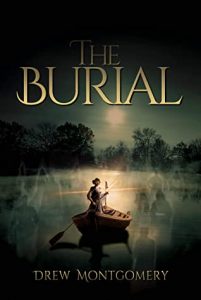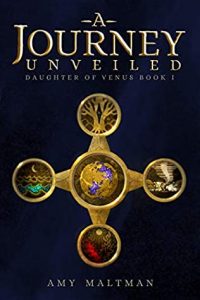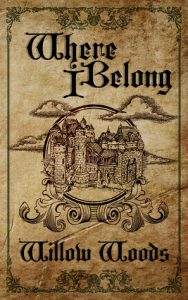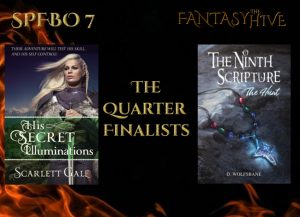SPFBO 7 – The Third Eliminations
Welcome to our Third Eliminations post for SPFBO 7.
This week, we have grouped our five brave entrants together into a “Leaving Home” batch. You can find out more about this week’s posts in our Meet the Batch post. Read on to find out which three of them fell in our third batch of eliminations, listed in alphabetical order.

The Burial
by Drew Montgomery
Theo:
 The fantasy is rather light in this one (so far). We do have a secondary world with a kind of early medieval setting, and a protagonist Eira haunted by dreams even before her husband Gwil is summoned away on a crusade to the holy land. The story is very focussed on Eira’s experience as the wife and mother left behind tending their farm during the long months of her husband’s absence. The author’s mastery of setting strongly conveys the kind of feudal village life I read about in first year at school. The religious terminology also borrows extensively from the European experience, with the notion of a crusade and heathens and rites to be performed for the dead, and a holy city to be recovered. The lack of a map though is in keeping with the character’s experience. Their knowledge of geography beyond the boundaries of their village is limited to the point of non-existence, so – when Eira does start travelling – we share her awareness of place only through the words she has told and the scenes she sees and describes. The story is professionally produced and told, the writing unobtrusively effective without necessarily displaying eye catching flashes of brilliance. At the 20% mark we have definitely had the call to action, but – tbh – I am slightly sceptical about one of Eira’s decisions, and find myself more in sympathy with the characters who rebuke her for it, than for Eira herself. Then again, maybe that’s the pragmatic cynic in me. The set-up and challenge, at its heart appears to be a simple one and that I think is where I worry the story will not sustain my interest if I read on. However, whenever a character goes on a journey there is scope for a lot to happen. Eira has a goal she is pursuing, but the tension in good creative writing is always between a character’s goal (that measurable outcome they think they want) and their need (that essential development of self that they have yet to realise is their real objective). So I would hope in subsequent pages to find Eira’s goal challenged and her true need revealed, and at this point I’m OK to read on, but not totally wedded to the story.
The fantasy is rather light in this one (so far). We do have a secondary world with a kind of early medieval setting, and a protagonist Eira haunted by dreams even before her husband Gwil is summoned away on a crusade to the holy land. The story is very focussed on Eira’s experience as the wife and mother left behind tending their farm during the long months of her husband’s absence. The author’s mastery of setting strongly conveys the kind of feudal village life I read about in first year at school. The religious terminology also borrows extensively from the European experience, with the notion of a crusade and heathens and rites to be performed for the dead, and a holy city to be recovered. The lack of a map though is in keeping with the character’s experience. Their knowledge of geography beyond the boundaries of their village is limited to the point of non-existence, so – when Eira does start travelling – we share her awareness of place only through the words she has told and the scenes she sees and describes. The story is professionally produced and told, the writing unobtrusively effective without necessarily displaying eye catching flashes of brilliance. At the 20% mark we have definitely had the call to action, but – tbh – I am slightly sceptical about one of Eira’s decisions, and find myself more in sympathy with the characters who rebuke her for it, than for Eira herself. Then again, maybe that’s the pragmatic cynic in me. The set-up and challenge, at its heart appears to be a simple one and that I think is where I worry the story will not sustain my interest if I read on. However, whenever a character goes on a journey there is scope for a lot to happen. Eira has a goal she is pursuing, but the tension in good creative writing is always between a character’s goal (that measurable outcome they think they want) and their need (that essential development of self that they have yet to realise is their real objective). So I would hope in subsequent pages to find Eira’s goal challenged and her true need revealed, and at this point I’m OK to read on, but not totally wedded to the story.
Belle:
While I didn’t read the blurb before starting The Burial, I still managed to feel a bit let down while reading. I found the writing style really engaging, but by 20%, I just didn’t feel engaged enough to want to continue.
The set up and worldbuilding is very well thought out, and Eira’s very limited experience outside her immediate life allows us to learn about the greater world without any infodumping becoming necessary, and I really appreciated that. The flipside however, is that for me, it felt like reaching the inciting incident took forever. I also didn’t feel like Eira’s decision to leave was very consistent with her determination to keep Gwil home in the beginning.
I think there is a lot of potential for her character development on while following her on her journey, but this one was not for me.
Peter:
The fantasy is quite light in this book, we do however get a wonderfully created secondary world based on an early medieval setting. This is a slow burn story, which focuses on a character called Eira. She is left behind to look after her children after her husband is summoned to fight for the Prophet, the author uses the idea of a crusade that her husband has been sent on. The author’s grasp of setting was brilliant, the description of village life was masterful and then when Eira leaves her village, the fact she has never really been anywhere else becomes apparent. It was wonderful to discover this world along with Eira. The book flowed well, and I enjoyed the first 20% and it’s about that moment when the story really gets going. Events are foreshadowed but the lack of fantasy elements didn’t allow me to engage, I didn’t feel hooked and this may be an issue for other readers. I actually would quite happily read on and see where Eira’s story goes, it just didn’t quite have enough of the fantasy.
Scarlett,
I have always been a fan of historical fiction and The Burial embodies all of the qualities I enjoy in that genre. This is a slow and intricate moving story about a woman named Eira, who is left behind to run the farm with her children, after her husband has been summoned to fight in the name of the Prophet to reclaim lands and cities that have been captured by bloodthirsty heathen tribes in the south. The return of her husband and other men in the area is uncertain. As time passes, Eira ventures to the nearest village and dutifully attends church services with the other women. Mail from loved ones in the crusade is read out loud in the congregation and a neighbourly way of coming together eases everyone somewhat, till the letters stop coming in. When a man, at the brink of collapse brings terrible news, Eira knows she has to do something. Not ignoring her bad dreams anymore, she is going on a quest and insists on giving her husband a proper burial, should he be dead.
Very low on any fantastical elements, this is almost exquisite and tender but I have not travelled far enough with Eira that I could tell where this is going. Terrible scenes are foreshadowed, but in the length of time reading to the 20% mark, nothing very fantastical appeared yet. To me, this is a promising novel. I enjoyed it’s slow pacing and the setting that reminds me of the very early middle ages and the idea of heathen tribes made me think of the Germanic ones in history. The writing had an effortless flow and I was engaged with the characters. Though this was a lovely read for me, it didn’t set that hook that draws readers right in, nor did it apply fantasy elements early on, which may have been a shortcoming for fantasy readers looking for that. Outside of this competition, this would be a book I would choose to read.
Calvin:
This one has such a tender, personal feel to it. There isn’t a lot of fantasy, at least through 20%. In fact, I could easily be convinced this was an historical novel if not for some of the specifics of the religion and a few other details. If you prefer low fantasy, this might be one to check out. The story is focused on Eira, who is a wife and mother. Her husband is summoned away to a holy war, and we briefly see the long months of his absence. We’re treated to brief glimpses of the difficulty the absence of the men creates for the village. It all feels very authentic and real. The prose doesn’t draw attention to itself but also doesn’t get in the way of telling the story. There were some very tender moments in the first 20% of this one, and when Eira receives certain news and makes a fateful decision, the true story begins. While I don’t have much to criticize in this one, I also can’t say that it truly grabbed my attention. The aching tenderness of the first portion of the story was special. But I’m not sure that’s enough to sustain the plot. It’s also possible that the backdrop of the story feels too generic for me. Even so, this is an excellent example of how so much of judging a book is preference. I’m certain that this story would really connect with others.
A Journey Unveiled
by Amy Maltman
Theo:
 I like the conceit of a transit of Venus being the portal opening moment to get the protagonist into a second world. However there are some slips (the date of the transit switches between 2004 & 2008, the protagonist uses a character’s name in her PoV thoughts before the character has been introduced) which suggest the need for a bit of additional editing. It is in the nature of portal fantasy that the newly arrived protagonist needs the world built for them (and the reader) so the need for exposition through conversation feels more natural. I also liked the idea of a world in the grip of some kind of climate change phenomenon through the interference of human/our world agency. The first 20% though – besides a plane crash and a bloody prologue – is rather taken up with housekeeping. Still. I’d be happy enough to read on.
I like the conceit of a transit of Venus being the portal opening moment to get the protagonist into a second world. However there are some slips (the date of the transit switches between 2004 & 2008, the protagonist uses a character’s name in her PoV thoughts before the character has been introduced) which suggest the need for a bit of additional editing. It is in the nature of portal fantasy that the newly arrived protagonist needs the world built for them (and the reader) so the need for exposition through conversation feels more natural. I also liked the idea of a world in the grip of some kind of climate change phenomenon through the interference of human/our world agency. The first 20% though – besides a plane crash and a bloody prologue – is rather taken up with housekeeping. Still. I’d be happy enough to read on.
Belle:
Portal fantasies can be really difficult to pull off – the transition to the new world and how the main character handles it can really make or break the entire book for me, and in this case, I don’t think it was handled very well. While the prologue was really interesting and showed a lot of promise for the rest of the book, I didn’t enjoy the next few chapters where we meet our main character. There is a lot of information for her (and therefore us) to learn and it felt a bit info-dumpy to me.
As mentioned elsewhere, a bit of editing would make a world of difference and tighten up inconsistencies and lengthy descriptions. I still think there is a lot of potential in this book, but unfortunately it didn’t work for me.
Peter:
This was the first book I picked up in this year’s SPFBO. I really enjoyed the prologue which starts the book so well. A prophecy, a siege and the book starts with a real sense of excitement with all the elements to draw the reader in. The book then switches to Lexi, who is travelling from Italy to Belgium with her family. Her father is interested to see the passage of Venus, but enroute the plane they are on crashes. I was so intrigued that the actual passage of Venus was used as the catalyst for the portal to the new world opening up, Lexi is then led by a woman to a new world, Ayandoh, and discovers that she is in fact a witch. This is where the book took a bit of a downward turn, you are given a lot of information about the world and so much lore and worldbuilding happens that it felt very info dumpy. That being said the author has created an interesting and intriguing world, but the major problem I had with this – as Scarlett mentions – is that Lexi is completely okay with everything and very compliant about what is quite a frightening situation.
Scarlett:
A Journey Unveiled begins with a bang of a prologue to serve as background or prelude story in this portal fantasy. Witches, dwarfs, princes, lords and a prophecy…all the catching elements to draw a reader in. Jumping right into the midst of an intense scene or any prologue for that matter, means that I will take it at face value if the author finds it to be important. I can always read it later again to make any connections to the actual plot. The main story begins with Lexi and her parents and older brother flying first class from Italy to Belgium. Lexi’s father, being a physics professor, is highly interested in seeing Venus passing between Earth and the sun while in flight. When their oxygen masks drop, everything goes very fast and the last thing Lexi remembers are the green treetops. As the lone survivor of the crash, Lexi must find help and a woman leads her to a cave where she finds out that a connective veil opened while Venus was crossing the sun, and that she now is on a planet named Ayandoh. The woman is taking on her guardianship to protect her and it turns out she is a witch. The story proceeds in explaining much about this different world with 5 nature elements and different magics and gods who are in control of such things as blessings like wisdom, courage & justice and how they work. This is when Lexi finds out, she has powers too.
I am a fan of artefacts and the reluctant hero type stories…even some portal fantasies overall. What did not work for me in this story was the immediate feel of convenience leading to the events I could almost predict and how they were set up. Given the dramatic prologue, learning about Ayandoh and its magical system, it held my interest though I couldn’t get past Lexi’s overall compliance with the situation. When my reality meets something so fantastical, I would just lose it before going along with everything.
As Theo pointed out, there were some discrepancies I noticed as well, but as a reader I like to put doubt on myself first, though it confirms that I wasn’t the only one picking up on it. From as much as I read of this novel, I think of it as an ambitious endeavour that could benefit from edits to tighten everything up a bit more.
Calvin:
The beginning of this one was pretty intense and served to draw me in fairly quickly. That’s what I like in my prologues, and the prologue for A Journey Unveiled certainly had that. Like Theo, I enjoyed the idea that the transit of Venus provides the backdrop for a portal opening between worlds. What we see of magic in the second world–at least in the first 20%–was also intriguing to me and I’d like to learn more about it. However, as others have pointed out, there were some editing slips, changing dates for the transit, and the protagonist using a character’s name before she’d actually be introduced to that character. However, the larger issue for me was that I didn’t feel much connection to the MC. I think this is largely because the narrative voice is third omniscient, rather than third limited. Third-person omniscient narrators can work (look at the Lord of the Rings!), but I do think they tend to create some distance between the reader and the characters, and that didn’t work for me in this one.
Where I Belong
by Willow Woods
Theo:
 An interesting premise in a portal fantasy, the amnesiac protagonist washes up in a bejewelled dress under the pier at Bournemouth. The first 21% is then a bit stop-start in the unravelling of who she was and where she came from. The amnesiac aspect of the story plants the protagonist right alongside the reader in the kind of “What the hell is going on?” kind of wonderment. Bournemouth (until recently known as God’s Waiting room because of its reputation for sleepy retirement homes by the sea) feels like the utter antithesis of most fantasy worlds, especially for Alexandra who has forgotten everything but her name. The opening 10% or so is set in Bournemouth and the speed with which Alexandra adapts to this surely totally alien environment felt a bit glossed over. Alexandra’s competence – and promotion to coffee-shop assistant manager – reminded me a bit of a speculative TV series “Lost in Austen” where a supremely capable but temporally displaced Elizabeth Bennett made an excellent fist of living in 21st Century London, while Darcy ended up standing utterly bewildered on a street corner. Amnesia is a versatile plot device as was seen in the Schwarzennegger film “Total Recall” where the amnesiac is left wondering about not just who they are, but more about what kind of person they are/were. Another resonance for me was with the film “Sleeping with the enemy” and the story does touch on aspects of domineering and abusive male attitudes, including the assumptions made by Alexandra’s Bournemouth boss. However, while the story has potential, I felt aspects of it were painted in too broad brush strokes, particularly when Alexandra is transported to her real home. I would have liked more subtlety in the menace. A man gets burned to a crisp for opening his mouth in a ballroom, and then someone comes on to sweep up the ashes while everyone else dances. Both in the mundane detail of fashioning a life with no papers or identity in Bournemouth and in the unfolding complications of Alexandra’s real life, the story seemed to be in a hurry to describe rather than savour what was happening. I don’t feel invested enough to read on but one hope for the story’s development would be that it does at some point return to Bournemouth. I would like the denouement to be in the middle of a flashy firework display on Bournemouth pier waking up the sleepy retirees.
An interesting premise in a portal fantasy, the amnesiac protagonist washes up in a bejewelled dress under the pier at Bournemouth. The first 21% is then a bit stop-start in the unravelling of who she was and where she came from. The amnesiac aspect of the story plants the protagonist right alongside the reader in the kind of “What the hell is going on?” kind of wonderment. Bournemouth (until recently known as God’s Waiting room because of its reputation for sleepy retirement homes by the sea) feels like the utter antithesis of most fantasy worlds, especially for Alexandra who has forgotten everything but her name. The opening 10% or so is set in Bournemouth and the speed with which Alexandra adapts to this surely totally alien environment felt a bit glossed over. Alexandra’s competence – and promotion to coffee-shop assistant manager – reminded me a bit of a speculative TV series “Lost in Austen” where a supremely capable but temporally displaced Elizabeth Bennett made an excellent fist of living in 21st Century London, while Darcy ended up standing utterly bewildered on a street corner. Amnesia is a versatile plot device as was seen in the Schwarzennegger film “Total Recall” where the amnesiac is left wondering about not just who they are, but more about what kind of person they are/were. Another resonance for me was with the film “Sleeping with the enemy” and the story does touch on aspects of domineering and abusive male attitudes, including the assumptions made by Alexandra’s Bournemouth boss. However, while the story has potential, I felt aspects of it were painted in too broad brush strokes, particularly when Alexandra is transported to her real home. I would have liked more subtlety in the menace. A man gets burned to a crisp for opening his mouth in a ballroom, and then someone comes on to sweep up the ashes while everyone else dances. Both in the mundane detail of fashioning a life with no papers or identity in Bournemouth and in the unfolding complications of Alexandra’s real life, the story seemed to be in a hurry to describe rather than savour what was happening. I don’t feel invested enough to read on but one hope for the story’s development would be that it does at some point return to Bournemouth. I would like the denouement to be in the middle of a flashy firework display on Bournemouth pier waking up the sleepy retirees.
Belle:
I think Where I Belong has an interesting premise, although I’m not generally a fan of the whole amnesia trope. The first few chapters were a bit of a struggle for me – Alexandra seemed to adapt to modern life remarkably quickly, although that may be a side effect of several weeks being glossed over after she leaves hospital.
The story picks up a bit when we start to get glimpses of her other life, but unfortunately not enough for me to continue. Alexandra’s lack of agency, especially when she returns home, turned me off a bit, especially as she mostly seemed to go along with everyone else’s plans for her, with minimal pushback.
While I can see a lot of potential in the writing and future character development, I didn’t make it much past 10%, and as others have mentioned non-consensual sex scenes, I’m quite glad about that.
Peter:
This book has an interesting premise, we meet our main character Alexandra who wakes in a hospital room in Bournemouth. She was found washed ashore and suffering from amnesia, the story moves from there. While I enjoyed the idea I just couldn’t engage very well with this story, it’s paced well and it develops nicely. I didn’t enjoy some of the characters, and the point of Alexandra’s emancipation was well made and the book did pick up for me when Alexandra’s world starts to come to light. However there was one scene which shook me, which was a non-consensual sex scene and that really put me of the book.
Scarlett:
In this portal fantasy we meet the main character Alexandra as she wakes up in a hospital room after having been found washed up under a pier in a beautiful, sequined dress from what seems like another time, in the picturesque town of Bournemouth. She can’t remember who she is but for the time being, will try to make a living at a local coffee shop and rent a room till things will come back to her so she can return to where home is, or someone comes forward looking for her. And as it so is, she is starting to enjoy her new life, when a few weeks later, someone actually does come for her and convinces her to come back home. The now somewhat reluctant Alexandra learns of her betrothal to a man she does not love and something that happened in the past through glimmers of her visions. Her mother, more deceit then love it seems, has her own motivations for her daughter’s wedding to happen, and Alexandra struggles with her inability to make decisions, which may be how she ended up in Bournemouth in the first place.
This story had a beautiful, nostalgic dreamscape feel to it and was quite unexpected, albeit much too sweet for my taste. The main protagonist goes through somewhat of an awakening and emancipation during her time living alone in that new town, a transformation that was made a point to be picked up on, I think. The world where she comes from was somewhat elusive to really grasp because mainly everything evolved around a dramatic event from Alexandra’s past and the effort to conform her into marriage. Her mother’s character was so knifing in contrast, think of the evil stepmoms in Disney movies, and made it uber-abundantly clear how her daughter did not have a choice in this decision. I did not enjoy the somewhat repetitiveness of that sentiment and found myself less interested with the immature portrayal of the character due to memory loss. Perhaps that is something that would be remedied later in the story as she did evolve while in Bournemouth, but I do not find enough curiosity in me to read on and find out. This might be something a younger audience would enjoy more than I did.
Calvin:
Here is another one where the opening premise was interesting. A person from another world ends up in ours, but is amnesiatic, having forgotten everything except her name. There are tantalizing clues (she is found in a dress bespeckled with gemstones), but nothing firm. Outside of that basic premise, I didn’t find the first 10%, where our protagonist is in Bournemouth, that engaging. However, once the plot begins to pick up and we’re exposed to a different world, I did start to feel more engaged. Unfortunately, a big turnoff for me is when characters lack agency, and the majority of the early plot in this book involves the main character having almost no agency. I’ve no doubt that at some point in the book there will be the moment when she takes agency and fights back. However, for me I set the book down after a scene of non-consensual sex and I don’t think I’ll pick it back up.
And so our quarter-finalists are
His Secret Illuminations by Scarlett Gale and Ninth Scripture by D. Wolfsbane

Links:
Week 1 ‘Our World’: Meet the Batch | Eliminations | Quarter-finals
Week 2 ‘Epic’: Meet the Batch | Eliminations | Quarter-finals

[…] 3 ‘Leaving Home’: Meet the Batch | Eliminations […]